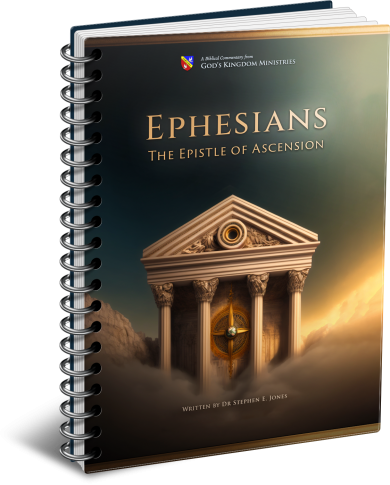Did you know that God made a promise to you many years ago? His promise was made to everyone. So if you live on this earth, then it applies to you.
Long ago, in the days of Noah, God made a covenant with the whole earth and everyone living on it. He bound Himself by an oath not to allow the earth to be destroyed (Gen. 9:17).
A few centuries later, in the days of Moses, God made a similar vow to clarify what he meant. God took an oath to make us all His people and to be our God. He then said (Deut. 29:14, 15),
“Now not with you alone am I making this covenant and this oath, but both with those who stand here with us today in the presence of the Lord our God and with those who are not with us here today.”
The Israelites in that time witnessed this oath, but it was not given to them alone. God said that it applied to the whole earth—“those who are not with us here today.”
Were you there when God made that oath? Of course not. But if you were NOT there, it still applies to you!
Do you understand what that means?
God took the responsibility upon Himself and bound Himself with an oath to see to it that you would be one of His people and that He would be your God.
He did not say, “If you are good, then I will make you one of My people.”
He did not say, “I will give everyone the opportunity to come to Me so that if they promise to follow Me, then I will make them My people.”
No, God took an oath to do this by His own will and His own power. That is His promise.
Two Covenants
There are two kinds of covenants that God has made with people. One is where God makes a promise to us. The other is where we make a promise to Him.
Because God made this promise, He is the one that is responsible to fulfill it. When we make a promise, we are the ones who are responsible to fulfill our word.
It’s that simple. Whoever makes the promise is the one required to keep his word.
The Bible says that Moses led the Israelites out of Egypt and brought them to Mount Sinai. There they were asked to make a promise (covenant) with God (Exodus 19:8). They agreed. So they promised to obey God always, and they bound their children to that promise as well. They all had good intentions, but they failed often to keep their promise. So that covenant failed and had to be scrapped.
But God still loved them and did not give up on them. What was the solution to this problem?
Forty years later, God made His own promise to them—and to everyone living on earth. This is the oath or promise that I mentioned earlier.
God too had good intentions. The difference was that God also had the ability to keep His promise. Yet many have doubted His ability to save all mankind. They say He cannot overrule their free will.
They say that man has free will, but God does not. The devil can make you do things, but God cannot. Really? Is God really that helpless? Is man’s will really stronger than God’s will? Is there nothing God can do that would succeed in saving all mankind?
Must we give God credit for trying, or for having good intentions? Did He do all that He could, but in the end do we have to admit that He was unable to fulfill His promise? Has God failed?
Is God Able to Keep His Promise?
The question is whether or not God really has the power to fulfill His oath. Many do not believe that He is able to save the whole earth and restore all to fulfill their purpose in life. But no one should make a promise that he cannot keep. Not even God Himself.
What they are really saying is that God made an oath that He could not keep, because it was never in His power to do so. If that were true, then God should not have made a promise He could not keep. But He did make this promise, and He only asks that we believe that He is able to keep it.
In other words, God asks that we have faith in Him. He does not require us to have faith in our own ability to keep whatever promises we make to God. Do you see the difference?
The difference is who is responsible to do it—you or God?
Have you ever made a promise to God? Were you able to keep your promise? Did you promise to change your life so that it would be pleasing to Him? Did you succeed?
My guess is that you did not. I myself have made thousands of promises to God, and they all fell short in spite of my good intentions. Every time I promised never to sin again, I failed.
And then I discovered that God had made a promise to me and to the whole world. That changed everything. No longer was I responsible to have faith in my good intentions. I suddenly saw that God was responsible to change me.
Suddenly, my faith shifted. I realized that I no longer needed to have faith in my own ability. I just needed to have faith in Him and His ability to keep His word.
You see, I was raised in the church. I was taught that my decision to follow Jesus was what would save me and make me one of God’s people. The problem was that as long as my salvation was based on my own decision (and vow), I found it impossible to make good on my decision—even with good intentions.
I struggled with this for many years. I know that many others do as well. Many are discouraged and just give up, thinking they will never be good enough to come to God. God is too holy, they say, and I am too sinful.
That is how it is as long as we think everything is based on our own will, our own decision, and our own promise. Old Covenant Boulevard is a dead end.
But God is love. He loves you, even if you don’t love yourself! Because He is love, He has stepped in by His own sovereign free will and has bound Himself by an oath to save the whole world—including you!
You may think you are too far gone for God to love you. You may think you have sinned too much for God’s promise to apply to you. If so, you are precisely the reason Jesus died on the cross. He paid the full penalty for everyone’s sin. He took the responsibility for your sin upon Himself.
God’s law was set up first to define sin and justice to show judges how to bring true justice when people sin. A biblical judge does not have the right to forgive sin, but the victims do have that right.
When Jesus paid the penalty for the sin of the whole world, He became the victim for every sin ever committed in this world. That gave Him the right to prosecute us or to forgive! What did He do?
When Jesus was dying, one of His last words were, “Father, forgive them” (Luke 23:34). This was His prayer to the Judge. Jesus was exercising His rights to forgive all the sins that He was paying for by His death on the cross. Was Jesus’ prayer answered, or did it carry no weight with the Judge?
Jesus knew what He was doing, and He knew His rights. He had the right to forgive, and He did. That includes your sins as well, no matter what you have done. That is how His love was demonstrated.
God’s Plan to Save All
Man was created in the image of God. His purpose was to have the same nature as God Himself. But man sinned and brought death to the world. This is why we are all mortal.
The law of God requires penalties for sin, so Jesus came to earth to die on the cross to pay for the sin of the whole world. One of Jesus’ disciples, a man named John, also wrote in a letter that Jesus paid the penalty not only for the sins of believers but also for the sins of the whole world (1 John 2:2).
Further, Jesus said that if He were to die on the cross, He would draw everyone to Himself (John 12:32). This is how He demonstrated His love for the world. He was willing to die even for His enemies before they even knew Him!
What Should We do?
The only thing that is required of you is to have faith in the promise of God. Believe that His promise applies to you and that Jesus’ death on the cross paid the full penalty for all your sins.
Just say, “I believe it!” Have faith in Him.I know that sounds too simple and far too easy, but it is true. God made it easy so that it is not out of reach for anyone.
If this good news has caused you to have faith in Him, it is evidence that God has now begun to work in your heart to change your life. His promise to the world is beginning to apply specifically to you.
Know then that God will continue to work in your heart and will guide you by His Spirit to show you many things that you did not know before.
The next step is to learn more about this plan of salvation, so that you will be able to live the kind of life that God meant for you from the beginning. Begin to read and study the Scriptures and His laws, so that you will learn what kind of person God intends to make you by the time this is over.
The laws of God were given originally as commands for us to keep. But now that we have been given the New Covenant, these same laws have become God’s promises to us. Instead of you having to try to do what God commands in order to be good, God promised to give you His divine nature.
So when you read the Ten Commandments, think of them as God’s Ten Promises to you. God has promised to change your heart so that you will not steal, you will not kill, you will not commit adultery, you will not lie, and you will not covet.
Are you ready for a change in your life? See how He transforms you back into His image.



